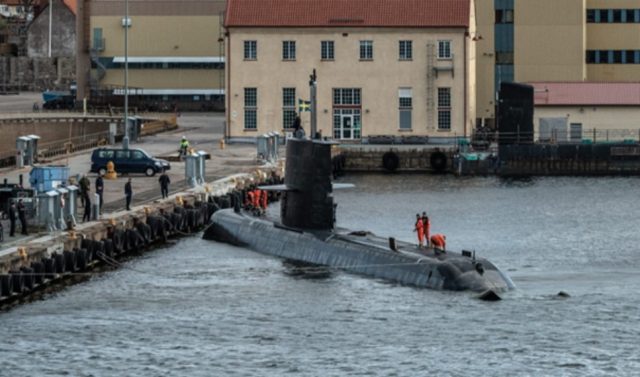
It turned out to be a much longer process than Swedish politicians imagined. But almost two years after the application was submitted, as of March 7, Sweden is the defense alliance’s 32nd member. It is a historic event – with mixed feelings.
Sweden adopted its neutral and non-aligned stance after the Napoleonic Wars in the 1810s. After being a major European power in the 17th century, the rest of Europe had begun to catch up with Sweden’s ability to manufacture military equipment, develop tactics on the battlefield and organize a large army, despite Sweden having a significantly smaller population than the players on the continent.
How neutrality came about
The new Swedish crown prince Karl Johan, former French marshal Jean Baptiste Bernadotte, chose in 1810 to reorganize Swedish foreign policy. The Swedish government and the people had hoped that Karl Johan would join Napoleon in the war against Russia 1812. This meant that Sweden could reclaim Finland, which for 600 years had been the country’s eastern half, but was lost to Russia 1809.
But Bernadotte knew Napoleon and the French conditions better than anyone in Sweden. He did not believe that Napoleon would succeed in defeating Russia. When Napoleon invaded Swedish Pomerania in 1812, the Swedish hopes for Napoleon cooled. Karl Johan could then meet Tsar Alexander and made a deal. If Sweden joined the resistance against Napoleon, the Tsar would support Sweden’s claim to Norway, as compensation for Sweden ceding Finland.
So, Sweden entered into an alliance with Austria, Prussia and Russia to defeat Napoleon. But Karl Johan’s army did not go into France, but up into Denmark to force Napoleon’s ally Denmark to surrender Norway to Sweden.
When this major political compensation for the loss of Finland was established in a peace treaty in 1814, Karl Johan took the non-aligned position of neutrality that Sweden would then take for 210 years. Until March 2024, when Sweden became a member of the NATO defense alliance.
“Neutrality has served us well”
A standing expression for all governments during this two centuries was “freedom from alliances in peacetime, aiming at neutrality in the event of war”. And this security policy doctrine kept Sweden out of several wars – from the Danish-Prussian wars (where King Karl XV had to be persuaded not to join Denmark’s side) to the First and Second World Wars.
Therefore, a common mantra in recent decades has been “neutrality has served us well” to dampen public opinion that wanted more active efforts beyond all nice words. This meant that Sweden removed neutrality from the security doctrine in 1991 (but retained non-alignment), as the government wanted to be able to support the Baltics in their independence from the collapsing Soviet Union.
But joining NATO has been too big a step for the majority of parties and also the Swedish public opinion. Interestingly, the moods in Finland have been exactly the same as in Sweden. It is as if the once common nation lives on beneath the surface.
Strong own defense
In order to make Swedish neutrality credible in the eyes of the outside world, Sweden, until the mid-1990s, had one of the world’s highest military expenditures per capita. Sweden did not remain a political power after the 17th century, but the arms industry, which was already world-leading at the time, continued to produce weapons and weapon systems of the highest world class.
Although there was opposition from left-wing parties, Sweden invested in building its own systems for submarines, fighter aircraft and artillery. The Jas Gripen combat aircraft and the Gotland class of submarines are proof of this, as are the Combat Vehicle 90 and artillery weapons of various types. They are now excelling in Ukraine, where the Ukrainian soldiers praise the Swedish systems for their reliability and efficiency.
But Sweden is, after all, a country with only 10 million inhabitants.
NATO with hesitation
In the long run, it has become difficult to maintain the will and motivation for such an extensive military defense requires. And after the fall of the wall, security gave way to pure peace utopianism which meant that 90 percent of the army was dismantled and 70 percent of the navy between 1995 and 2015.
When Russia went in with a full-scale attack on Ukraine, the politicians finally woke up from the rosy dreams of peace. But now Sweden stood almost naked.
The alternatives to NATO were unrealistic. At least in the short term.
The opinion polls show great support for NATO membership after the Russian attack. But that’s because people know that no alternative exists. Many are disappointed that Sweden has no scope for a continued security policy doctrine of its own.
However, the blame for this does not lie with anyone other than the short-sighted, naive politicians of their own country.
So, now here we are. And can’t do anything but make the best of the situation.



 Subscribe
Subscribe